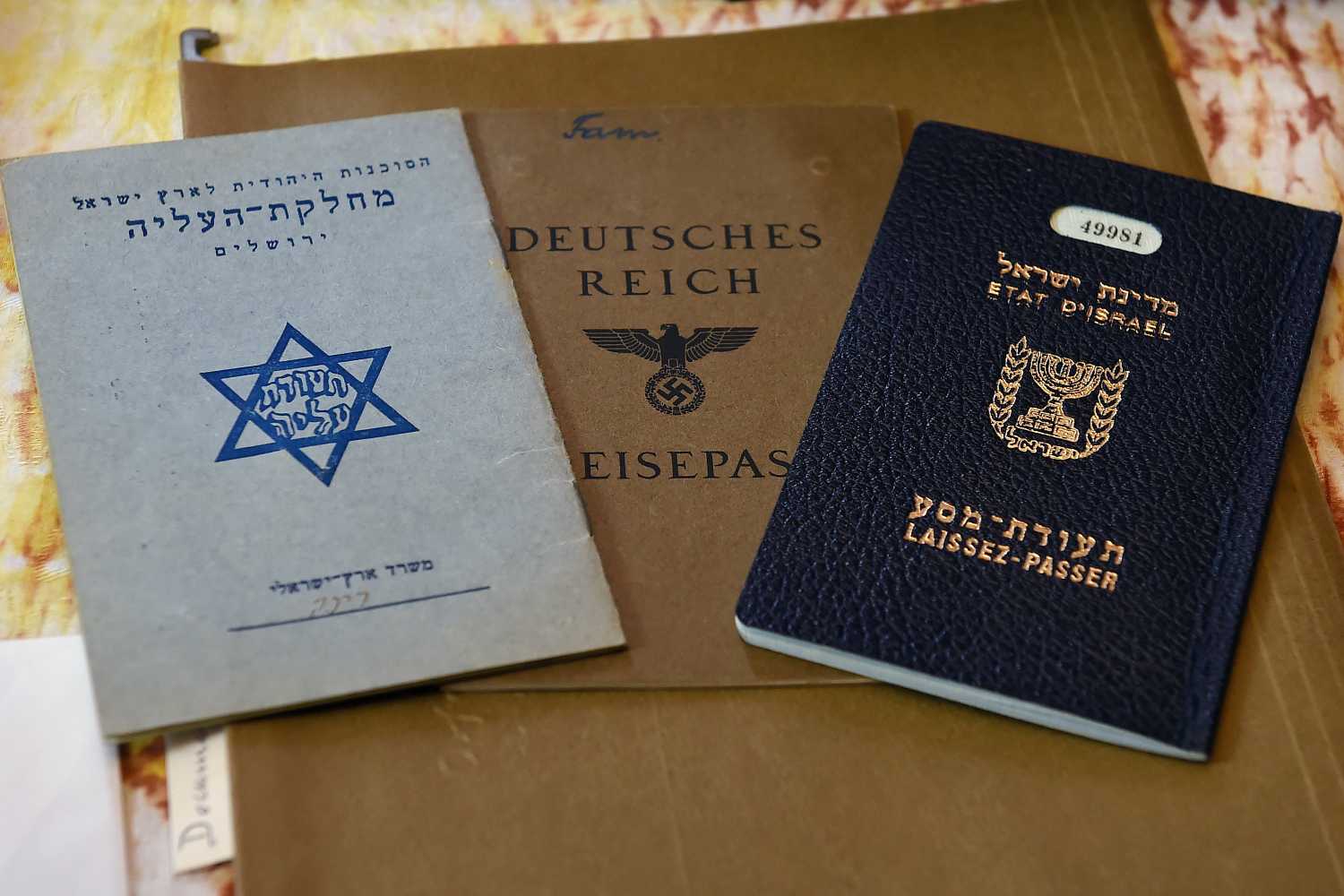EXPLAINED: When is dual citizenship allowed in Austria?

Austria is known for having some of the strictest citizenship rules around. People generally have to give up their previous citizenship when naturalising as Austrian, and Austrians mostly lose their citizenship if naturalising somewhere else. But there are exceptions.
Dual citizenship is designed to be difficult and restricted in Austria. Naturalisation almost always comes with an obligation to renounce previous citizenship, but the children of Austrian nationals married to foreigners probably have valid claims.
Here’s a rundown of the most common cases where dual citizenship is allowed in Austria.
Dual citizenship at birth
Someone who is born Austrian and another nationality is allowed to keep both passports without having to choose between them at any point in their life.
Since Austrian citizenship follows the jus sanguinis principle of citizenship by bloodline, rather than the jus soli principle of citizenship through being born in a country – this often means an Austrian child with dual citizenship is born to one Austrian parent and one foreign parent. In this case, the child inherits both citizenships right from birth automatically.
It is important to note here that a child born to an Austrian father but an Austrian mother must have the father acknowledge parentage within eight weeks of birth in order to pass on Austrian citizenship. If the parents are married, this requirement is waived.

Austrian Dads who aren't married to their children's Moms need to acknowledge paternity to pass on citizenship. Marriage between an Austrian and a foreigner can often result in children having dual citizenship. (Photo by Juliane Liebermann on Unsplash)
READ ALSO: Five surprising Austrian citizenship rules you should know about
Being born on Austrian soil, where neither parent is Austrian however, would not entitle the child to dual citizenship. If they were to naturalise as Austrian later, they would generally be expected to give up any other citizenship they might hold.
While being born to one Austrian and one foreign parent might be a particularly straightforward way of a child getting the right to dual citizenship, there are other possibilities.
A child born to two Austrian parents, but in a country that confers jus soli citizenship – would have both Austrian citizenship and the nationality of the place they were born. For example, as Canada confers citizenship by birth there, a child born in Canada to two Austrian parents – even if the parents weren’t themselves Canadian citizens – would be entitled to both Austrian and Canadian citizenship.
A child born to a parent who themselves is a dual citizen with Austrian nationality would also get to keep both passports.
READ ALSO: Who is entitled to Austrian citizenship by descent and how to apply for it
Citizenship restoration
Another case where dual citizenship is allowed is for those who apply for Austrian citizenship through the restoration route available to victims of the Nazis and victims’ descendants.
As of September 1st, 2020, those who were persecuted under National Socialism and left Austria before May 15th, 1955 are able to apply to have their citizenship restored - while keeping any other citizenship they may have.

Documents belonging to Noah Rohrlich's grandfather, Fritz Rohrlich who fled Nazism in Austria. Photo: OLIVIER DOULIERY / AFP
This provision applies to Austrian Jews, people who were stateless, and people who were citizens of successor states of the old Austro-Hungarian Empire who were resident in Austria at the time of the Nazis. While those applying to restore their Austrian citizenship under this provision may often be Jewish - or had Jewish ancestors - others who were persecuted under the Nazis may also apply.
They may have been targeted for other reasons, including political ones such as their support for democracy in Austria.
In 2022, the most common other nationalities of people applying for Austrian citizenship through this route were Americans, Israelis and Brits.
State approval
If someone naturalises as Austrian or an Austrian naturalises somewhere else, they may be able to get state approval to retain both nationalities in very rare cases.
This occurs "only if the award of Austrian citizenship is in the special interest of the Republic of Austria (award in the interest of the state) due to the extraordinary achievements already made by the person and still to be expected from him/her, Austria waives the withdrawal from the previous state association."
Arnold Schwarzenegger, for example, was allowed to retain his Austrian nationality while becoming American.
However, these cases are exceptional and permission must be applied for beforehand.
READ ALSO: Could Austria ever change the rules to allow dual citizenship?
Comments
See Also
Dual citizenship is designed to be difficult and restricted in Austria. Naturalisation almost always comes with an obligation to renounce previous citizenship, but the children of Austrian nationals married to foreigners probably have valid claims.
Here’s a rundown of the most common cases where dual citizenship is allowed in Austria.
Dual citizenship at birth
Someone who is born Austrian and another nationality is allowed to keep both passports without having to choose between them at any point in their life.
Since Austrian citizenship follows the jus sanguinis principle of citizenship by bloodline, rather than the jus soli principle of citizenship through being born in a country – this often means an Austrian child with dual citizenship is born to one Austrian parent and one foreign parent. In this case, the child inherits both citizenships right from birth automatically.
It is important to note here that a child born to an Austrian father but an Austrian mother must have the father acknowledge parentage within eight weeks of birth in order to pass on Austrian citizenship. If the parents are married, this requirement is waived.

READ ALSO: Five surprising Austrian citizenship rules you should know about
Being born on Austrian soil, where neither parent is Austrian however, would not entitle the child to dual citizenship. If they were to naturalise as Austrian later, they would generally be expected to give up any other citizenship they might hold.
While being born to one Austrian and one foreign parent might be a particularly straightforward way of a child getting the right to dual citizenship, there are other possibilities.
A child born to two Austrian parents, but in a country that confers jus soli citizenship – would have both Austrian citizenship and the nationality of the place they were born. For example, as Canada confers citizenship by birth there, a child born in Canada to two Austrian parents – even if the parents weren’t themselves Canadian citizens – would be entitled to both Austrian and Canadian citizenship.
A child born to a parent who themselves is a dual citizen with Austrian nationality would also get to keep both passports.
READ ALSO: Who is entitled to Austrian citizenship by descent and how to apply for it
Citizenship restoration
Another case where dual citizenship is allowed is for those who apply for Austrian citizenship through the restoration route available to victims of the Nazis and victims’ descendants.
As of September 1st, 2020, those who were persecuted under National Socialism and left Austria before May 15th, 1955 are able to apply to have their citizenship restored - while keeping any other citizenship they may have.

This provision applies to Austrian Jews, people who were stateless, and people who were citizens of successor states of the old Austro-Hungarian Empire who were resident in Austria at the time of the Nazis. While those applying to restore their Austrian citizenship under this provision may often be Jewish - or had Jewish ancestors - others who were persecuted under the Nazis may also apply.
They may have been targeted for other reasons, including political ones such as their support for democracy in Austria.
In 2022, the most common other nationalities of people applying for Austrian citizenship through this route were Americans, Israelis and Brits.
State approval
If someone naturalises as Austrian or an Austrian naturalises somewhere else, they may be able to get state approval to retain both nationalities in very rare cases.
This occurs "only if the award of Austrian citizenship is in the special interest of the Republic of Austria (award in the interest of the state) due to the extraordinary achievements already made by the person and still to be expected from him/her, Austria waives the withdrawal from the previous state association."
Arnold Schwarzenegger, for example, was allowed to retain his Austrian nationality while becoming American.
However, these cases are exceptional and permission must be applied for beforehand.
READ ALSO: Could Austria ever change the rules to allow dual citizenship?
Join the conversation in our comments section below. Share your own views and experience and if you have a question or suggestion for our journalists then email us at [email protected].
Please keep comments civil, constructive and on topic – and make sure to read our terms of use before getting involved.
Please log in here to leave a comment.